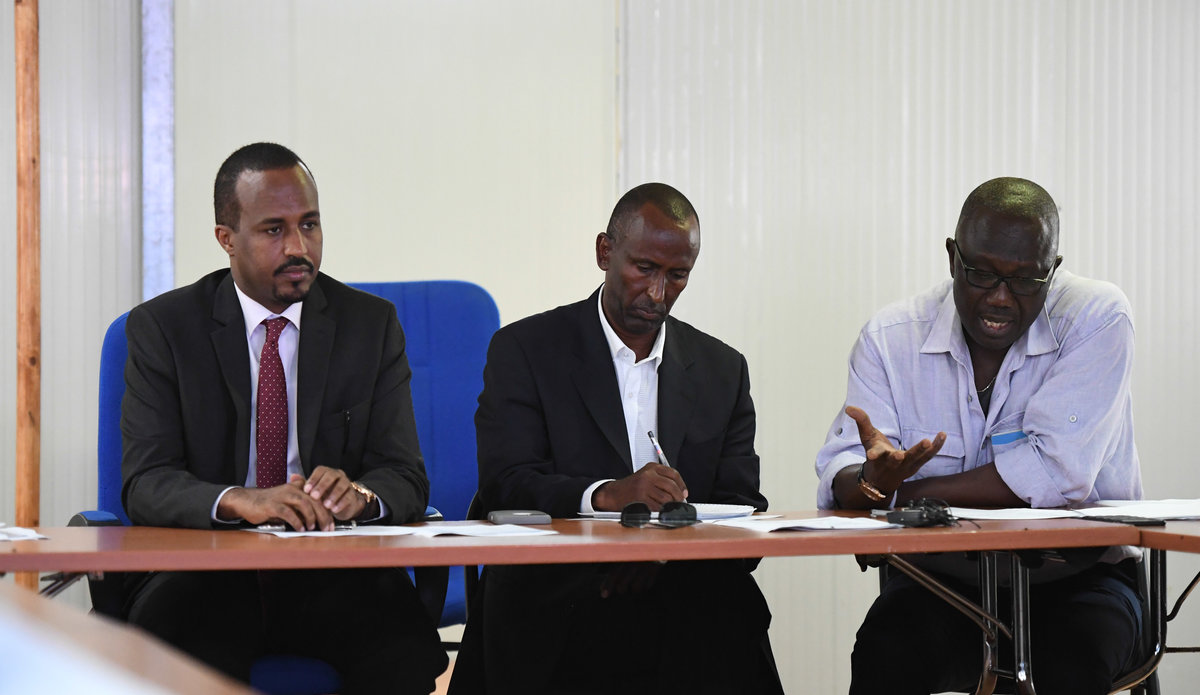European Union launches a €12 million Reinteg programme for Internally Displaced Persons in Benadir region
Mogadishu - The European Union, in partnership with the United Nations and the Banadir Regional Administration, has launched a €12 million ($13.4 million) project to protect and support the reintegration of Internally Displaced Persons (IDPs) in Banadir region.
The project, called “RE-INTEG,” also aims to improve the living conditions of IDPs and returnees through the establishment of governance systems that will regulate their rights to housing, land and property, as well as social and political inclusion.
Project implementation will be led by the Banadir Regional Administration along with UN agencies, namely the United Nations High Commission for Refugees (UNHCR), UN-Habitat and the United Nations Development Programme (UNDP), and non-governmental organisations such as the Somali Women Development Centre (SWDC), Somali Innovation Development Organisation (SIDO) and Cooperazione e Sviluppo (CESVI).
RE-INTEG is funded by the European Union’s Emergency Trust Fund for Africa and will be implemented over a three-year period in Banadir region, which encompasses Mogadishu.
The Deputy Governor of Banadir Region, Mr Salah Sheikh Mohamed, noted that the project will help ameliorate the living conditions of IDPs, especially in Mogadishu, which has the highest concentration of temporary settlements and offered recruitment grounds for radical groups.
“At this time, the situation of IDPs is extremely volatile. It is way out of our control and our limited resources will not allow us to tackle this problem by ourselves. I am sure that with all the help we can get, we will use it,” Mr. Salah Sheikh Mohamed said at the launch of the Reinteg programme.
Ms. Susanne Martin, the EU Delegation’s Head of Section for Resilience, Infrastructure, Productive Sector said the RE-INTEG project would be implemented in an inclusive approach to build cohesion and promote collective ownership for all Somalis, irrespective of clan affiliation.
“Displaced people and host communities alike will all be supported with a view to reaching those that are the most vulnerable, irrespective of which group they belong to or which place they come from,” Ms. Martin emphasised.
The Federal Minister of Planning, Mr Gamal Mohamed Hassan, appealed to international partners to align their programmes with the country’s National Development Plan.
“We have IDPs everywhere in the city. Next to ministries and inside ministries and other government facilities,” he explained. “So, these are real issues we need to deal with and your support is very critical.”
Mr Peter de Clercq, the Deputy Special Representative of the United Nations Secretary-General (DSRSG) for Somalia, who is also the United Nations Resident Coordinator, Humanitarian Coordinator and UNDP Resident Representative, said the project would not only support the IDPs with basic needs, but also help boost incomes and livelihoods.
“It looks at the whole range of issues that will help IDPs fully integrate into society, and become normal residents of Somalia’s big cities,” Mr de Clercq stated.
The project is expected to facilitate the return of returnees back to their homes, although some will be integrated into their host cities.
 UN
UN





